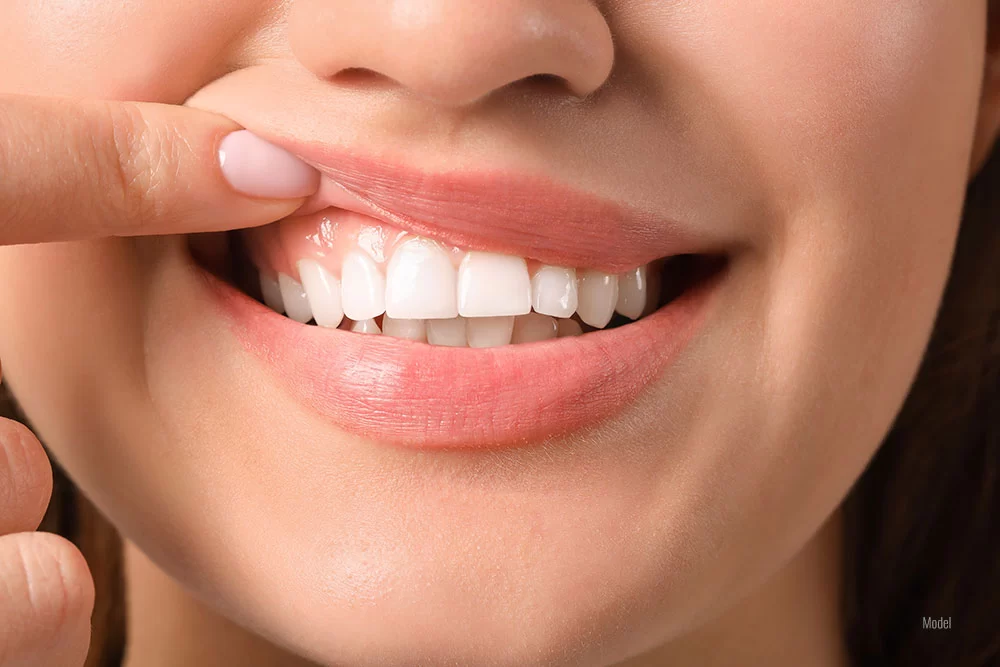
Understanding the Causes of Swollen Gums
Have you ever woken up with swollen gums that feel tender or even painful to the touch? I’ve been there, and I know how unsettling it can be. Swollen gums aren’t just uncomfortable—they can signal that something is wrong with your oral health. The first thing I learned when I experienced this issue was that swollen gums could be caused by several different factors. Understanding these causes can help you manage the condition and prevent it from recurring.
One common cause of gum swelling is gingivitis, an early form of gum disease caused by plaque buildup on your teeth. If you haven’t been brushing and flossing as regularly as you should, plaque can irritate your gums and lead to swelling, redness, and bleeding. This was actually the culprit in my case when I noticed my gums were swollen after a few days of neglecting my oral hygiene routine.
Other causes can include infections, abscesses, or even a reaction to certain medications. I’ve also learned that food particles or debris stuck between your teeth can trigger gum swelling. In some cases, swollen gums could be a sign of a more serious condition, such as periodontitis or systemic issues like diabetes. That’s why it’s important to pay attention to the signs and take action as soon as possible.
Immediate Care Steps for Swollen Gums
When my gums became swollen, I didn’t waste any time seeking relief. I knew it was important to act fast to reduce the discomfort and prevent the situation from getting worse. Here are the immediate care steps I took that helped me find relief and heal my swollen gums.
1. Rinse with Saltwater
Saltwater rinses are one of the simplest yet most effective remedies I used to treat my swollen gums. Salt is known for its antibacterial properties, and it helps draw out excess fluid, which reduces swelling. To make a saltwater rinse, I mixed about half a teaspoon of salt in warm water and swished it around my mouth for 30 seconds. I did this multiple times a day, especially after meals, and it helped reduce both the swelling and the discomfort.
2. Apply a Cold Compress
If your swollen gums are painful or inflamed, a cold compress can provide immediate relief. When I felt throbbing pain in my gums, I wrapped a few ice cubes in a clean cloth and gently applied it to my cheek near the affected area. The cold helped numb the pain and reduce inflammation. I kept the compress on for about 10 minutes at a time, taking breaks between applications.
3. Maintain Good Oral Hygiene
Although it may seem counterintuitive, brushing your teeth gently with a soft-bristled toothbrush is essential when dealing with swollen gums. I made sure to brush twice a day, but I avoided harsh scrubbing that could irritate my gums further. Flossing carefully around the swollen area helped remove food particles and plaque that could worsen the condition. I also made sure to use an alcohol-free mouthwash to avoid further irritation.
4. Avoid Certain Foods
While dealing with swollen gums, I learned that avoiding certain foods can help prevent irritation. Spicy, acidic, and hard foods can aggravate the swelling and make your gums more sensitive. I stuck to soft, non-irritating foods like soups, mashed potatoes, and yogurt while my gums healed. Staying hydrated with water also helped keep my mouth moist and assisted in washing away any debris or bacteria.
5. Use Over-the-Counter Pain Relievers
If the pain was unbearable, I turned to over-the-counter pain relievers like ibuprofen or acetaminophen to ease the discomfort. These medications helped reduce both the pain and the inflammation associated with swollen gums. However, I always made sure to follow the recommended dosage to avoid any side effects.
When to Seek Professional Help for Swollen Gums
While home remedies provided relief for my swollen gums, I quickly realized that persistent or severe swelling could indicate a more serious problem. After a few days of self-care, if the swelling hadn’t gone down or if the pain was unbearable, I knew it was time to see my dentist.
In some cases, swollen gums could be caused by an abscess or an infection that requires professional treatment. When I visited my dentist, they performed a thorough examination to determine the cause of my swollen gums. In my case, the swelling was due to gingivitis, and my dentist recommended a deep cleaning to remove the plaque buildup and prevent further gum disease.
If your swollen gums are accompanied by fever, pus, or an unpleasant odor, it’s important to see a dentist immediately. These symptoms could be signs of a gum infection or abscess that requires prompt treatment to prevent it from spreading to other areas of the mouth.
Preventing Swollen Gums in the Future
After my experience with swollen gums, I became much more proactive about my oral hygiene routine. Regular brushing, flossing, and dental checkups are essential to keeping your gums healthy and free from swelling. I also made a habit of using an antimicrobial mouthwash to reduce plaque buildup and prevent gum disease.
Staying hydrated and avoiding smoking also helped maintain my gum health. Smoking can significantly increase your risk of developing gum disease, which is one of the leading causes of swollen gums. By taking these preventive measures, I’ve been able to avoid gum swelling and maintain a healthy, pain-free smile.
Remember, if you notice any signs of gum swelling, don’t wait for it to get worse. By taking immediate care of your swollen gums and seeking professional help if necessary, you can address the issue and ensure long-term oral health.







 Dr. David S. McGee, DMD5.0 (10 review)
Dr. David S. McGee, DMD5.0 (10 review) Dr. David Scharf - Long Island Periodontist & Dental Implants4.0 (234 review)
Dr. David Scharf - Long Island Periodontist & Dental Implants4.0 (234 review) Harbor Cove Dental5.0 (191 review)
Harbor Cove Dental5.0 (191 review) Perth Amboy Pediatric Dentistry & Orthodontics4.0 (455 review)
Perth Amboy Pediatric Dentistry & Orthodontics4.0 (455 review) All Star Dental Clinic4.0 (322 review)
All Star Dental Clinic4.0 (322 review) Coker Dental: Dr. William L. Coker, DDS4.0 (25 review)
Coker Dental: Dr. William L. Coker, DDS4.0 (25 review) The Importance of Oral Health Education During Pregnancy for a Healthy Pregnancy
The Importance of Oral Health Education During Pregnancy for a Healthy Pregnancy Best Tips for Brushing Your Teeth Properly for Healthy Gums: Essential Techniques for Oral Health
Best Tips for Brushing Your Teeth Properly for Healthy Gums: Essential Techniques for Oral Health Why Skipping Dental Checkups Can Lead to Bigger Oral Health Problems
Why Skipping Dental Checkups Can Lead to Bigger Oral Health Problems Advantages of Porcelain Dental Restorations
Advantages of Porcelain Dental Restorations How Can Diabetes Cause Tooth and Gum Problems? Preventing and Managing Oral Health Issues
How Can Diabetes Cause Tooth and Gum Problems? Preventing and Managing Oral Health Issues Healthy Habits for Promoting Good Oral Health and Hygiene: Tips for a Healthy Smile
Healthy Habits for Promoting Good Oral Health and Hygiene: Tips for a Healthy Smile